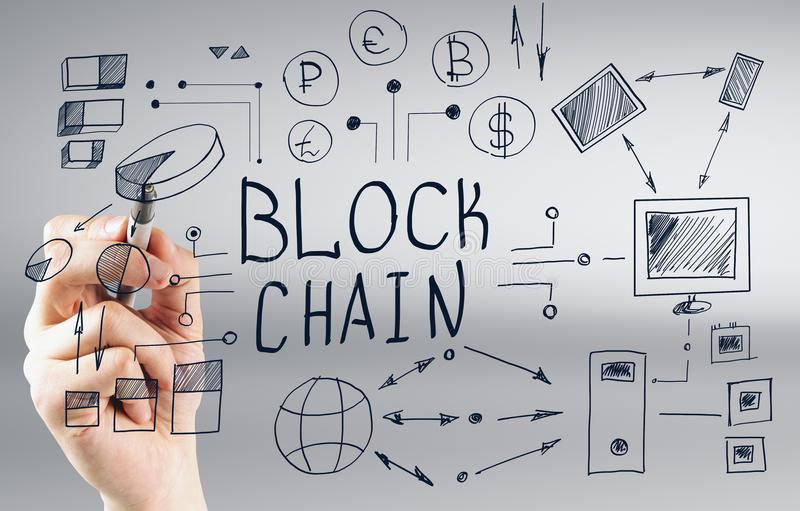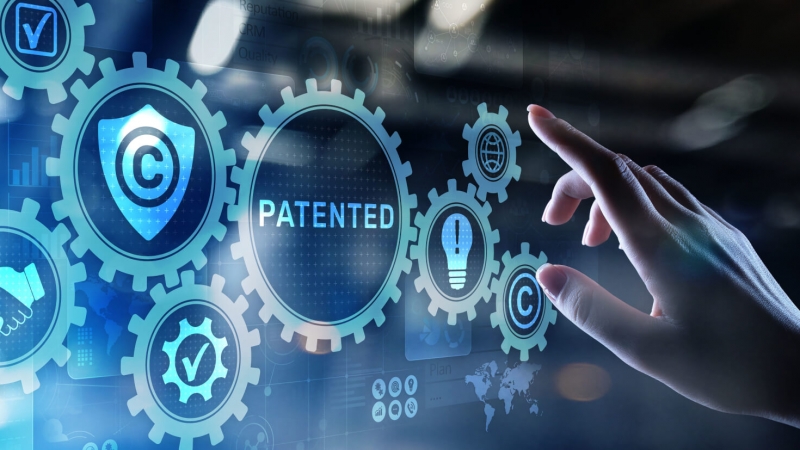By Eleni Metanoia,
Blockchain technology is an innovative digital record-keeping transaction and secure computation system, that has come to change the world that we live in. The number of inventions involving blockchain technology is growing mainly in the financial sector, but also in other fields. Due to its multiple applications for the 4.0 industry, granting patents to those who own blockchain inventions is crucial.
Patent rights were created in order to provide incentives and protection for inventors by recognizing their creativity. At the same time, the obligatory publication of patent applications could facilitate the mutually beneficial spread of new knowledge and promote innovation across the globe.
According to World Intellectual Property Organization (WIPO): “A patent is an exclusive right granted for an invention […], an exclusive right to a product or a process that generally provides a new way of doing something or offers a new technical solution to a problem. To get a patent, technical information about the invention must be disclosed to the public in a patent application. […] However, patent protection means that the invention cannot be commercially made, used, distributed, imported, or sold by others without the patent owner’s consent”.
In 2020, Germany, one of the main European hubs for technology and innovation development, accounted for only 5% of the leading companies filing blockchain-invention patents globally; while during the same period, China held 46% of the companies in the same category, followed by the US with 24%. However, if we look in comparison, European Union countries account for approximately 20% of the world’s main companies filing blockchain-invention patents.
Having in consideration the above reality, the European Patent Office (EPO), in its first conference on blockchain in 2018, started to revise ways in order to protect effectively blockchain innovations in the European Union and to ensure that patent-granting authorities grant blockchain patents that are legally robust in a predictable manner. Blockchain-patent applications can be related either to the underlying technologies such as public-key decryption or to the use of blockchain.

In addition, Article 52 (1) of the European Patent Convention (EPC) determines that: “[…] patents shall be granted for any inventions, in all fields of technology, if they are new, involve an inventive step, and are susceptible of industrial application. So, from the above definition, an invention is patentable, if it fulfills at the same time three key elements: novelty, inventiveness, and industrial application”.
“Blockchain inventions are essentially computer-implemented inventions (CII), so they are examined by the EPO according to established stable criteria, developed in accordance with CII case law”, as emphasized by Mr. Frederic Lievens, Operational Director at the EPO in the EPO Patenting Blockchain Conference in 2018.
In this context, the main principle that governs patentable subject matter of computer-implemented inventions at the EPO and under the EPC was established by the EPO Board of Appeal in its landmark decision T0641/00 (COMVIK) in 2002, where the EPO held that: “An invention consisting of a mixture of technical and non-technical features and having a technical character as a whole is to be assessed with respect to the requirement of inventive step by taking account of all those features, which contribute to said technical character, whereas features making no such contribution cannot support the presence of inventive step”.
The main features of blockchain include networking, computing, security, and data structures. These features are technical and thus, they are potential inventions. However, other features of blockchain, such as mathematics or certain business methods, appear to be more abstract, and abstract subject matter is mainly excluded from patentability.
As blockchain inventions are treated like CII inventions, the legal practice at the EPO utilizes the two-step approach in order to check their patentability.

The first step is to check whether the invention involves anything technical, or whether it is purely abstract. This step can easily be overcome by having included in the claims that the invention is the computer or a computer-implemented method, which has always provided the required technicality. So, since blockchain uses cryptographic methods, all blockchain-related patent applications will pass this first test and are therefore eligible for patentability.
The second step involves examining the invention as to novelty and inventive step, where examiners attempt to divide the technical from the non-technical features of a claim. Here, there is the possibility that even if some features — at first sight — might appear to be non-technical in nature, may well bring a technical effect in the context of the invention, and thus, the latter is patentable.
With the patentability of blockchain inventions continuing to be a debatable issue in a lot of countries worldwide since it arises reasonable doubts if such inventions are claiming subject matter that is patent-eligible, it is crucial that a harmonized approach regarding the patenting process should be achieved in an international level and a flexible legal network for granting blockchain patents to be designed in order to contain a wider range of technical features and subject matters that can be legally patented and are related to the new blockchain technologies. Besides, protecting blockchain innovations could facilitate the spread of new knowledge and technological inventions.
References
- European Patent Office, Talking about a new revolution: Blockchain, Conference report, the Hague, 2018, documents.epo.org, Available here
- The European Patent Convention, epo.org, Available here
- Frequently Asked Questions: Patents Basics, wipo.int, Available here
- Country breakdown of leading 100 companies filing blockchain invention patent applications globally in 2020, statista.com, Available here




